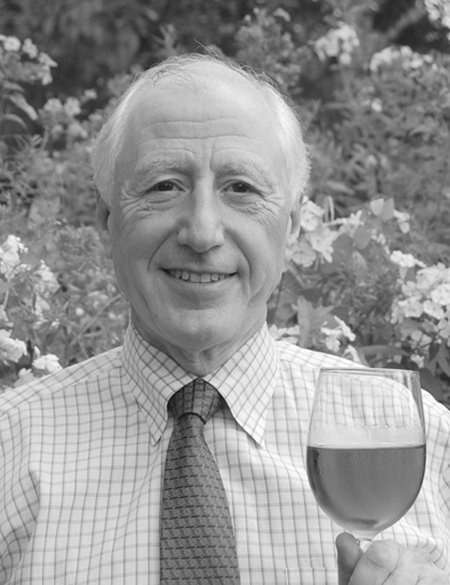Regional Leaders Slam Coast Guard Plan to Anchor Barges on Hudson
Regional elected, environmental and business leaders banded together Wednesday night to condemn a proposal by the United States Coast Guard to create 10 new anchorage sites with dozens of commercial barges along the Hudson River from Yonkers to Kingston.
At a standing-room only hearing attended by approximately 100 at Croton Village Hall, which was sponsored by state senators Terrence Murphy (R/Yorktown), Sue Serino (R/Hyde Park) and David Carlucci (D/Clarkstown), who collectively represent about 900,0000 constituents, officials took turns criticizing the Coast Guard for unveiling a plan that would encompass more than 2,000 acres of the river without first informing affected municipalities.
“Tonight is all about transparency,” said Murphy, who noted the Coast Guard was invited to attend the hearing but declined. “The reality is this was flying under the table. It was going low. The Coast Guard’s proposal raises concerns on many levels. Many towns along the Hudson have spent millions of dollars in revitalizing their waterfronts. And needless to say, the presence of unattended barges filled with oil poses a security risk.”
There is currently only one anchorage ground for vessels along a 100-mile stretch in the Hudson River from New York City to Albany. The Coast Guard, which has noted the plan is only in an exploratory phase, has publicly stated the proposal was initiated by the Maritime Association of the Port of NY/NJ Tug and Barge Committee, the Hudson River Port Pilot’s Association, and the American Waterways Operators.
The largest anchorage site of the 10 proposed would accommodate up to 16 vessels, stretching about 715 acres from the Greenwood Station in Yonkers to the Dobbs Ferry Train Station. Two sites are located in the Town of Cortlandt.
“It seems like we’re always fighting something,” said Cortlandt Supervisor Linda Puglisi. “They didn’t ask any of us for input. That in itself is outrageous. Decades of work has gone into cleaning up the Hudson River. We can’t go backwards. I know we will prevail.”
In August, a new organization of municipal officials called the Hudson River Waterfront Alliance was announced in Yonkers. An online petition on www.change.org was also launched by the alliance.
“The river belongs to all of us. It’s not a parking lot,” Yonkers City Council President Liam McLaughlin remarked at the hearing. “This part of the river is an urban river, not an industrial river.”
Westchester County Executive Rob Astorino maintained the anchorages would be “a soft target” for potential terrorist activity in an area that already includes the Indian Point nuclear power plants and several bridges.
“We have a problem with the size and scope of this,” Astorino said. “They list this as long-term, which could be anywhere from 30 days to in perpetuity. That’s not just stopping by. It’s moving in. Having barges moored along the Hudson and having the responsibility of more soft targets would create another layer of national security.”
Ned Sullivan, president of Scenic Hudson, noted his group has created 60 parks and preserves along the Hudson and they would all be put at risk by the presence of the anchorages.
“The Hudson will be a super highway for fossil fuels. It’s really crazy and something we’re adamantly opposed to,” Sullivan said. “We will all be working together to defeat this.”
The lone supporter of the Coast Guard’s proposal was Edward Kelly, executive director of the Maritime Association of the Port of New York and New Jersey, who spent nearly a half-hour explaining the merits of how the anchorages would “enhance the safety, security and environmental stewardship of the vessels and the waterways in which they operate.”
“Anchorages are good for safety,” Kelly said. “That’s what this is all about. A safe place to anchor is essential to the safety of the crew, the vessels, other operators’ property and cargos, as well as the health of the river environment itself.”
Representatives from Riverkeeper, Clearwater, Pace University Environmental Law School and the Hudson River Boat and Yacht Club Association were also in attendance, as were Peekskill Mayor Frank Catalina, Westchester County Legislator John Testa, state Assemblywoman Sandy Galef, Hudson Valley Gateway Chamber of Commerce Executive Director Deborah Milone and members of the Croton Board of Trustees, including Mayor Greg Schmidt.
The Coast Guard is planning to hold its own hearings in the spring. The public comment period for the project has been extended to December 6.

Rick has more than 40 years’ experience covering local news in Westchester and Putnam counties, running the gamut from politics and crime to sports and human interest. He has been an editor at Examiner Media since 2012. Read more from Rick’s editor-author bio here. Read Rick’s work here: https://www.theexaminernews.com/author/pezzullo_rick-writer/

